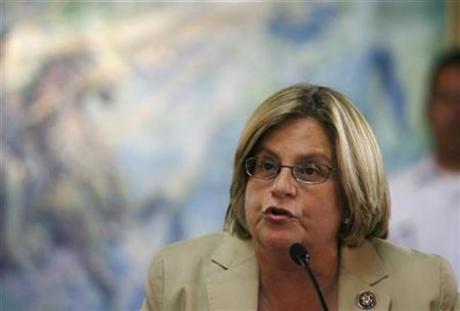
The November 2 midterm elections resulted in a new balance of power in Congress, most notably in the House of Representatives—now a Republican majority house. Domestic implications aside, the shift in power will have a significant effect on foreign policy initiatives, not least of which (for our purposes) is Cuba policy.
First of all, the next head of the House Foreign Affairs Committee—changing because the majority party has the privilege of holding this seat—will be Ileana Ros-Lehtinen (R-FL), the unrelenting anti-Castro, pro-embargo ranking Republican. She will replace Representative Howard Berman (D-CA), an advocate for modest rapprochement with Havana and co-sponsor of stalled bipartisan legislation to end the U.S. ban on travel to Cuba.
To be fair, we were not counting on much happening regarding the embargo in the short term, even with a Democratic House. But with Ileana at the helm of the House Foreign Affairs Committee, any loosening of restrictions will be out of the question. Significant changes in Cuba policy, without some sort of unforeseen breakthrough, will almost certainly be tabled until 2012.
Of course, although President Obama cannot lift the heavy embargo legislation on his own, he can use his executive authority to dismantle parts of it.
But it is highly unlikely that the President will spend any of his diminished political capital on the issue of Cuba when there is so little potential gain for him in doing so. The likely cost—say, a storm of ill will from Republicans in Congress and from an easily angered public that is vigilant these days for signs of executive overreach—simply outweighs any benefit that might emerge… a positive reaction from the global community, perhaps? The promise of applause from partners abroad has not been the impetus for any change on U.S. policy toward Cuba in prior years and will not be now, not even when the entire body of the United Nations General Assembly (save Israel) condemns the embargo. Every year the vote is taken and every year the tiny U.S. team has become more outnumbered: in 2008 the vote was 185 to 3; in 2009, 187 to 3; and now in 2010 (last week), 187 to 2—the two being the United States and Israel, a country whose citizens freely travel to, spend and invest in Cuba.
Ultimately it looks like stalemate at best in Washington. Unless Anya Landau French is onto something. Her musings:
“Maybe the administration will look to outgoing House Foreign Affairs Committee Berman to throw himself on his sword over the Cuba travel ban before the end of the current Congress, so the White House can come in and produce a ‘compromise’—the loosened travel regulations we all know are out there but inexplicably held up somewhere in the White House.”
Agree? Disagree? The 111th Congress has its last day on January 3, 2011, so there is a small window for the Berman Opportunity. Unlikely, but I like surprises.
(Photo credit: Reuters/Oswaldo Rivas)